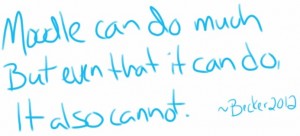Where was I headed?
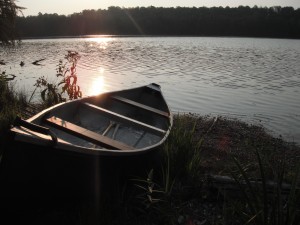 I’m a dyed-in-the-wool teacher, a lifelong learner, and a longstanding educational administrator. I’m a technophile who believes that technology can improve education. And I’m an optimist who believes that postsecondary education can be made better. I envision a number of ways that technology can improve the postsecondary teaching and learning experience, including increased efficiency and job satisfaction of faculty members, and strengthened pedagogical foundations in our classrooms. From supporting increased student choice and input into course activities to building a group of active and engaged teachers, technology is available to play a supporting role. The specific goals I set for myself when I prepared my Flight Path 12 weeks ago included developing increased expertise with Moodle and social media applications, and while I feel that the course activities supported me in the attainment of these goals, I feel like I still have a lot of learning to do.
I’m a dyed-in-the-wool teacher, a lifelong learner, and a longstanding educational administrator. I’m a technophile who believes that technology can improve education. And I’m an optimist who believes that postsecondary education can be made better. I envision a number of ways that technology can improve the postsecondary teaching and learning experience, including increased efficiency and job satisfaction of faculty members, and strengthened pedagogical foundations in our classrooms. From supporting increased student choice and input into course activities to building a group of active and engaged teachers, technology is available to play a supporting role. The specific goals I set for myself when I prepared my Flight Path 12 weeks ago included developing increased expertise with Moodle and social media applications, and while I feel that the course activities supported me in the attainment of these goals, I feel like I still have a lot of learning to do.
How far did I get?
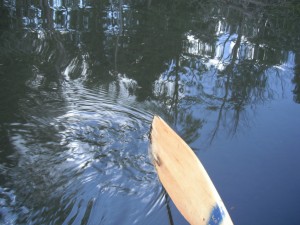 Early on in the course, I had a sinking feeling that I wasn’t going to be able to manage my course work and other obligations to the degree I would like. As the weeks progressed, I felt concern that I was not able to give the E-Learning Toolkit as much attention as I would have liked. I would visit occasionally, reading the information and reviewing the suggested activities and blog posts, and I completed some of the exercises, but I never found my way from there to my blog. I wish there had been more time. So, not wanting to miss out, and noticing the Create a Book feature in the navigational menu while I was rummaging through the Toolkit one day, I decided to make an e-book of the E-Learning Toolkit so that I could review it in the future, when I will presumably have more time. Having the E-Learning Toolkit in ePub format also means that I can review it when I’m offline, where I do spend a great deal of my time. Even though I began the create-an-e-book side project as a way to preserve my access to the Toolkit, it was also a learning process that led me to a deeper understanding of the wiki format in general.
Early on in the course, I had a sinking feeling that I wasn’t going to be able to manage my course work and other obligations to the degree I would like. As the weeks progressed, I felt concern that I was not able to give the E-Learning Toolkit as much attention as I would have liked. I would visit occasionally, reading the information and reviewing the suggested activities and blog posts, and I completed some of the exercises, but I never found my way from there to my blog. I wish there had been more time. So, not wanting to miss out, and noticing the Create a Book feature in the navigational menu while I was rummaging through the Toolkit one day, I decided to make an e-book of the E-Learning Toolkit so that I could review it in the future, when I will presumably have more time. Having the E-Learning Toolkit in ePub format also means that I can review it when I’m offline, where I do spend a great deal of my time. Even though I began the create-an-e-book side project as a way to preserve my access to the Toolkit, it was also a learning process that led me to a deeper understanding of the wiki format in general.
And ETEC 565A?
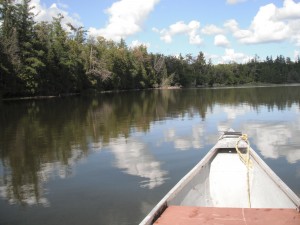 One word that accurately describes my ETEC 565A experience is transformative. In the context of the MET program, ETEC 565A forced me to revisit key concepts and delve further into technology that I had used in other courses on a more superficial level. I read articles and used technologies that I had encountered in other courses, but I did so in a different kind of way; I can’t really put it any more clearly than that. And I’m not sure whether the increased depth is attributable to the course directly or if my learning experiences to date have yielded this change, but my ETEC 565A experience was one of deepening competence in both the technologies and the thinking surrounding them. These were two of my primary goals in entering this field of study. I’m not sure if there is a higher praise that could be given of a course – that it directly supports the learners’ goals in selecting the overarching program – but I would add that a lot of what we did was also terribly kewl.
One word that accurately describes my ETEC 565A experience is transformative. In the context of the MET program, ETEC 565A forced me to revisit key concepts and delve further into technology that I had used in other courses on a more superficial level. I read articles and used technologies that I had encountered in other courses, but I did so in a different kind of way; I can’t really put it any more clearly than that. And I’m not sure whether the increased depth is attributable to the course directly or if my learning experiences to date have yielded this change, but my ETEC 565A experience was one of deepening competence in both the technologies and the thinking surrounding them. These were two of my primary goals in entering this field of study. I’m not sure if there is a higher praise that could be given of a course – that it directly supports the learners’ goals in selecting the overarching program – but I would add that a lot of what we did was also terribly kewl.
Another apt adjective is supportive. My experience in ETEC 565A included numerous supportive encounters with both classmates and the instructor, John Egan. The students, some of whom I have worked with in other classes, were eager to share their successes and their struggles in the discussion forums or via messaging. The amazing thing about that was the way it seemed to build us all up. The course forum became a place that we could go to get help not only from the instructor, but also from peers. However, even though a good many questions were answered by peers, it never felt like there was an absence of instructor presence. Indeed, whenever I read through such a thread, I had an image in my head of John reading, grinning, and nodding, and maybe eating a cookie.
The final word I would like to pay attention to is rewarding. Although the course experience was rewarding overall, I would say that this word most closely describes my experience completing the Moodle-related course activities – the digital story, the quiz, and the overall course site. In preparing the quiz,I found that much of my progress came from fiddling around with the activity settings. Although I had clear intentions setting out, the Moodle quiz capabilities (as well as the quiz assignment requirements) threw a wrench in my plans, and I had to rethink my approach. The same is true of the digital story component that I created using Prezi; my plan just didn’t work well given the constraints of the tool, and I had to find a workaround. In each of these examples, I ultimately turned out a finished product of which I was quite proud; I had overcome obstacles and made the tool do what I had planned. But this satisfaction paled when compared with the elation of making Moodle do what I wanted it to do. This process was at times challenging, disheartening, rewarding, and, in the end, triumphant. I am pleased with the end result. I feel that I was able to thoroughly explore Moodle’s features, find a few of its flaws, and in the end come to terms with its apparent paradoxical nature, prompting me to write a poem in haiku.
What’s next?
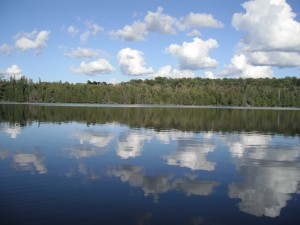 ETEC 565A is my sixth course in the MET program. I am taking ETEC 520: Planning and Managing Learning Technologies in Higher Education in Winter 2013, and plan to complete ETEC 540: The Changing Spaces of Reading and Writing in the Fall. That will leave me with two courses to complete, one of which I’m hoping will be the new elective course, ETEC 565G: Culture and Communication in Virtual Learning Environments, but the tenth course – I’m leaving that decision open for now. As I grow and evolve as an educator, I want to leave room for the direction I take to also change. I also expect that, between meeting my MET degree requirements while continuing to learn and meet the demands of my working life, I have a full learning slate well through 2014. And beyond that? Given the developments in technology that can occur over a two-year span, I would have to say that there’s no telling what kinds of educational technologies will emerge. But I do know that being a part of both the MET community and the University of Waterloo community will continue to offer up growth opportunities, and I intend to take full advantage whenever I can.
ETEC 565A is my sixth course in the MET program. I am taking ETEC 520: Planning and Managing Learning Technologies in Higher Education in Winter 2013, and plan to complete ETEC 540: The Changing Spaces of Reading and Writing in the Fall. That will leave me with two courses to complete, one of which I’m hoping will be the new elective course, ETEC 565G: Culture and Communication in Virtual Learning Environments, but the tenth course – I’m leaving that decision open for now. As I grow and evolve as an educator, I want to leave room for the direction I take to also change. I also expect that, between meeting my MET degree requirements while continuing to learn and meet the demands of my working life, I have a full learning slate well through 2014. And beyond that? Given the developments in technology that can occur over a two-year span, I would have to say that there’s no telling what kinds of educational technologies will emerge. But I do know that being a part of both the MET community and the University of Waterloo community will continue to offer up growth opportunities, and I intend to take full advantage whenever I can.

